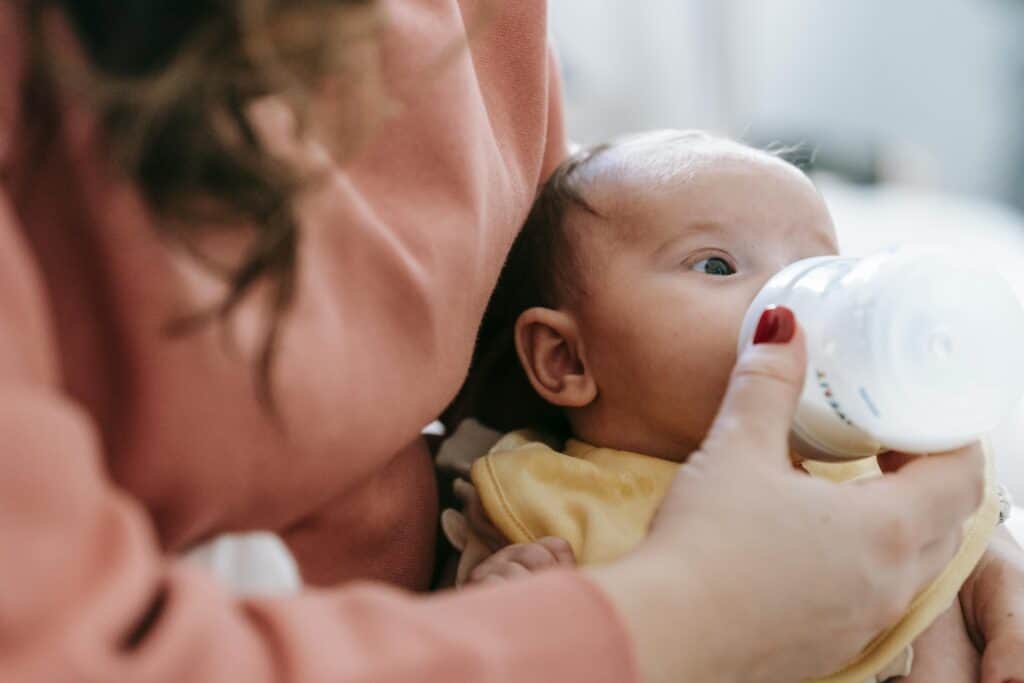There are many positive aspects and benefits of breastfeeding, especially for your infant. Over the past few decades a mountain of scientific evidence has validated a very straightforward observation: human mothers are beautifully designed to feed their own babies. Breast milk, with extremely rare exceptions, is the best source of nutrition for a child during the first months of life. Not only is it nutritionally complete and properly balanced, but it is also constantly changing to meet the needs of a growing baby.
Vitamins and minerals are adequately supplied in mother’s milk. And they’re present in a form that’s easier for a baby to absorb than that found in any other type of milk. As a result, no supplements are needed for the normal breastfed infant, with one exception: breast milk alone does not contain enough vitamin D to ensure proper bone development. This vitamin is manufactured in the skin in response to sunlight. But since direct exposure to sunlight (without sunscreen) can be hazardous to an infant’s delicate skin, the American Academy of Pediatrics (AAP) recommends that a baby fed only on breast milk also receive 400 international units (IU) of vitamin D every day by dropper, starting in the first few days of life.
Breast milk contains antibodies that help protect babies from infections. What’s more, it’s not only clean, fresh, warm and ready at any time, but it’s absolutely free! In many ways, a nursing mother is less “tied down” than her bottle-feeding counterpart because she won’t have to deal with the routines and costs of purchasing and preparing formula. Breastfeeding can also reduce the risk of a wide variety of serious health problems, some in infancy (such as SIDS) and others in later life (such as diabetes, obesity and elevated cholesterol levels). It offers several health benefits for Mom, as well. For instance, the stimulation of the nipples releases a hormone called oxytocin. Oxytocin helps the uterus contract and postpones the onset of the menstrual cycle which provides a natural – though not foolproof – method of spacing children. Nursing mothers also tend to reach their pre-pregnancy weight more quickly, and there is some research to indicate that breastfeeding may reduce a woman’s chances of developing breast and ovarian cancer, osteoporosis and hip fractures later in life.
Last but not least, breastfeeding promotes a sense of closeness, intimacy and mutual satisfaction between a mother and child. The skin-to-skin contact, the increased sensory input for the baby and the mother’s satisfaction in being able to provide her child’s most basic needs can help establish strong bonds between them.
A listing of so many advantages raises the obvious question: are there any reasons not to breastfeed? The answer, of course, is that it depends on your personal situation. There are a few, but for the most part they tend to be rare and related directly to special circumstances.
In the first place, there are a few medical situations in which breastfeeding poses a risk for the baby. HIV, the virus responsible for AIDS, can be transmitted through nursing. Similarly, a mother with active, untreated tuberculosis should not nurse her baby. Hepatitis C is not transmitted through breast milk, but it is spread through infected blood. A nursing mother with hepatitis C should temporarily stop nursing if her nipples or the area surrounding them become cracked or bleed.
Obviously, breastfeeding may be difficult or unsafe for both mother and child if the mother has any kind of serious illness. It’s also important to note that virtually all medications show up to some degree in breast milk. A thorough and careful consultation with your physician is in order in situations of this nature.
Previous breast surgery may affect a woman’s ability to nurse. A biopsy or local lump removal normally will not cause difficulty. Even after a mastectomy it is possible to feed a baby adequately using the remaining breast. Breast-enhancement/implant surgery should not cause a problem unless milk ducts were cut during the procedure. Breast-reduction surgery, however, may result in an inadequate milk supply if the majority of milk-producing tissue has been removed.
Phenylketonuria (PKU) and galactosemia are rare metabolic conditions that are detected by routine screening tests after birth. Infants born with these disorders must be fed special formulas. Congenital problems such as cleft lip or palate, heart disease and Down syndrome can create special challenges for nursing, but the benefits of mother’s milk for these infants are usually well worth the extra effort.
Other reasons that might cause a woman to consider forgoing breastfeeding could include a bad experience with nursing in the past; physical problems, such as the shape of the mother’s nipples (though this can usually be corrected fairly easily); lifestyle issues; and a mother’s need to return to work. However, in many cases working need not present an insurmountable obstacle to nursing.
In conclusion, although there are reasons a mother might think about bottle-feeding, there is clear medical consensus that breastfeeding is the preferred source of fuel for a newborn, and we definitely would encourage you to give this option serious consideration. If you have more questions and concerns about feeding your newborn, you can find more information in the resources below. You should also go over any specific concerns with your baby’s physician.
Resources
If a title is currently unavailable through Focus on the Family, we encourage you to use another retailer.












